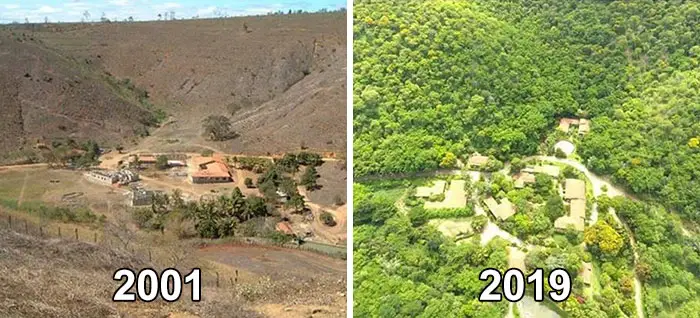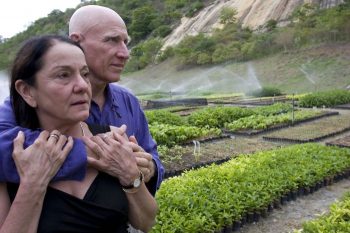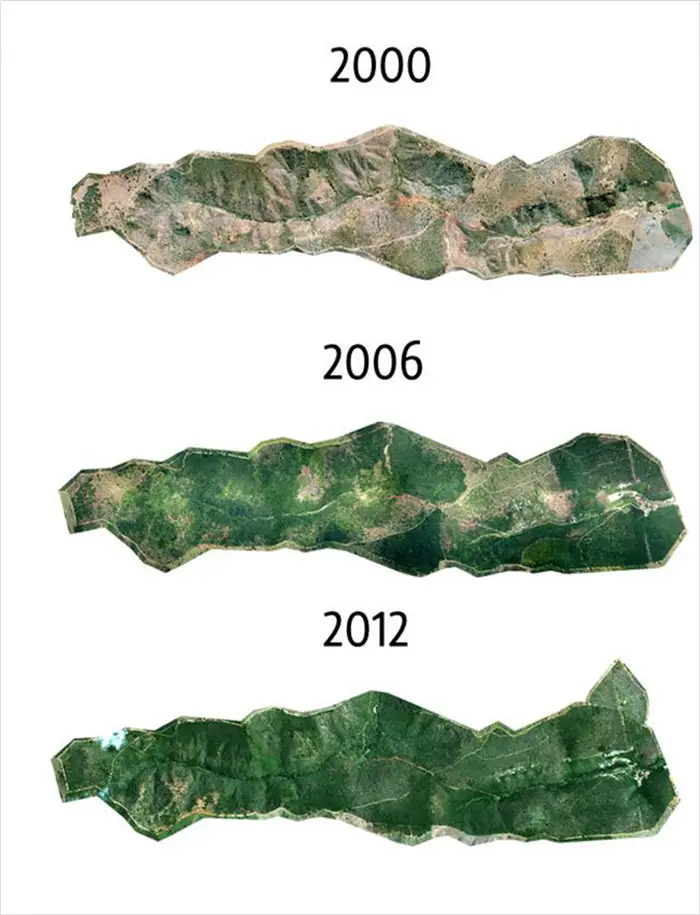Staff Writer for Wake Up World
Mother Nature definitely has a way of evening the score…taking back what’s hers. And we love that about her! Every single thing on this Earth, be it a plant or animal, mineral or bacteria, even the air we breathe, plays a part in the natural order.
[pro_ad_display_adzone id=”110028″]
As part of nature ourselves, we need stability in that natural order. Trees are an integral part of this balance. They do the heavy lifting where air quality is concerned by absorbing the carbon dioxide we exhale and trapping greenhouse gasses caused by human activity. They provide food and shelter to many types of wildlife, they help clean water, and they’re downright beautiful.
A Photographer Takes Action
As famed Brazilian photographer, Sebastião Salgado learned for himself, fewer trees can also mean less connection with nature. With ourselves.
 Image credits: Sebastiao Salgado
Image credits: Sebastiao Salgado
In the late 1990s, upon returning to his home in Brazil after a heart-wrenching photography assignment in Rwanda, Sebastião fell into despair. The plight of the Rwandans had taken a toll on his emotional wellbeing, and the lack of trees and wildlife in his surroundings made that much worse. He returned to a scene that starkly contrasted the paradise he remembered as a child. “The land was as sick as I was – everything was destroyed,” said Salgado. “Only about 0.5% of the land was covered in trees.” In his absence, the area around his home had been heavily deforested, and the barren landscape did nothing at all for the barren feeling in his heart.
 Image credits: Sebastião Salgado
Image credits: Sebastião Salgado
So, with the help of an amazing team of people, he and his wife Lélia Deluiz Wanick Salgado channeled their passion and energy into reforestation efforts for his property. “When we began to do that, then all the insects and birds and fish returned and, thanks to this increase of the trees I, too, was reborn – this was the most important moment,” said Sebastião. He and his family created Instituto Terra, a community non-profit, non-governmental organization whose sole objective is restoration, education, and research. The institute has planted more than 2 million trees in an area now declared a Private Natural Heritage Reserve. (1)
We All Depend On Trees
Besides their importance to the environmental landscape, humans rely on trees for countless everyday products such as: paper, coffee filters, guitars, grocery bags, pencils, beds, candy wrappers, chewing gum, crayons, spices, egg cartons, luggage, ping-pong balls, rubber, tires, dyes, incense, latexes, oils, resins, shellac, waxes, and toilet paper! The list goes on and on, and we also enjoy the literal fruits of their labor in the form of nuts, berries, and syrups. (2)
The beneficial effects that trees have on us are numerous, but we know the animal kingdom really appreciates them too. They support both the very small and the very large. Trees provide food, shelter, and sites for reproduction and hunting. So when trees are no longer part of the equation, neither are the animals who so love to commune with them.
Because of the many creatures that depend on trees in this way, reforestation is truly a labor of love. Not just for us, but for the whole wild kingdom too. (3)
Natural Reforestation Can Happen
If left alone, Mother Nature will reclaim her territory. Nowhere is this more apparent than Chernobyl, the site of the world’s largest nuclear disaster. More than 30 years after the horrific incident in which the entire town was evacuated, video footage reveals a place now overflowing with lush plant life, trees everywhere, and animals of all kinds. It’s still off-the-charts radioactive, and unlikely to ever be inhabited by humans again. But this fact lends itself well to the eerie beauty of nature reclaiming what was rightfully hers all along. She’ll do something with it, even if we can’t. (3)
Help A Mother Out
Yes, Mother Nature can certainly take care of things on her own, we know this for a fact. But not as quickly as we are asking for her resources.
So, it makes great sense for us to put some effort into reforestation, for the good of our own health. Replace what we’re taking, so we are working ourselves back into a natural balance we can sustain.
With a long term plan and a little manual labor, you can take a page from Sebastião and Lélia’s book, and be a part of saving this beautiful planet of ours.
Learn more about their project, and how you can participate, by visiting http://www.institutoterra.org.
Article sources:
- https://www.theguardian.com/global-development/2015/jul/27/sebastiao-salgado-fredrick-shoo-reforestation-brazil-tanzania
- https://www.nature.com/scitable/blog/our-science/no_trees_no_humans
- https://www.nwf.org/Trees-for-Wildlife/Wildlife-Benefits
- https://news.nationalgeographic.com/2016/04/060418-chernobyl-wildlife-thirty-year-anniversary-science/
About the author:
Amelia Harris is a writer and eco-activist, interested in health and all things esoteric, with a passion for sharing good news and inspiring stories. She is a staff writer for Wake Up World.
[pro_ad_display_adzone id=”110027″]


 Image credits:
Image credits: 




